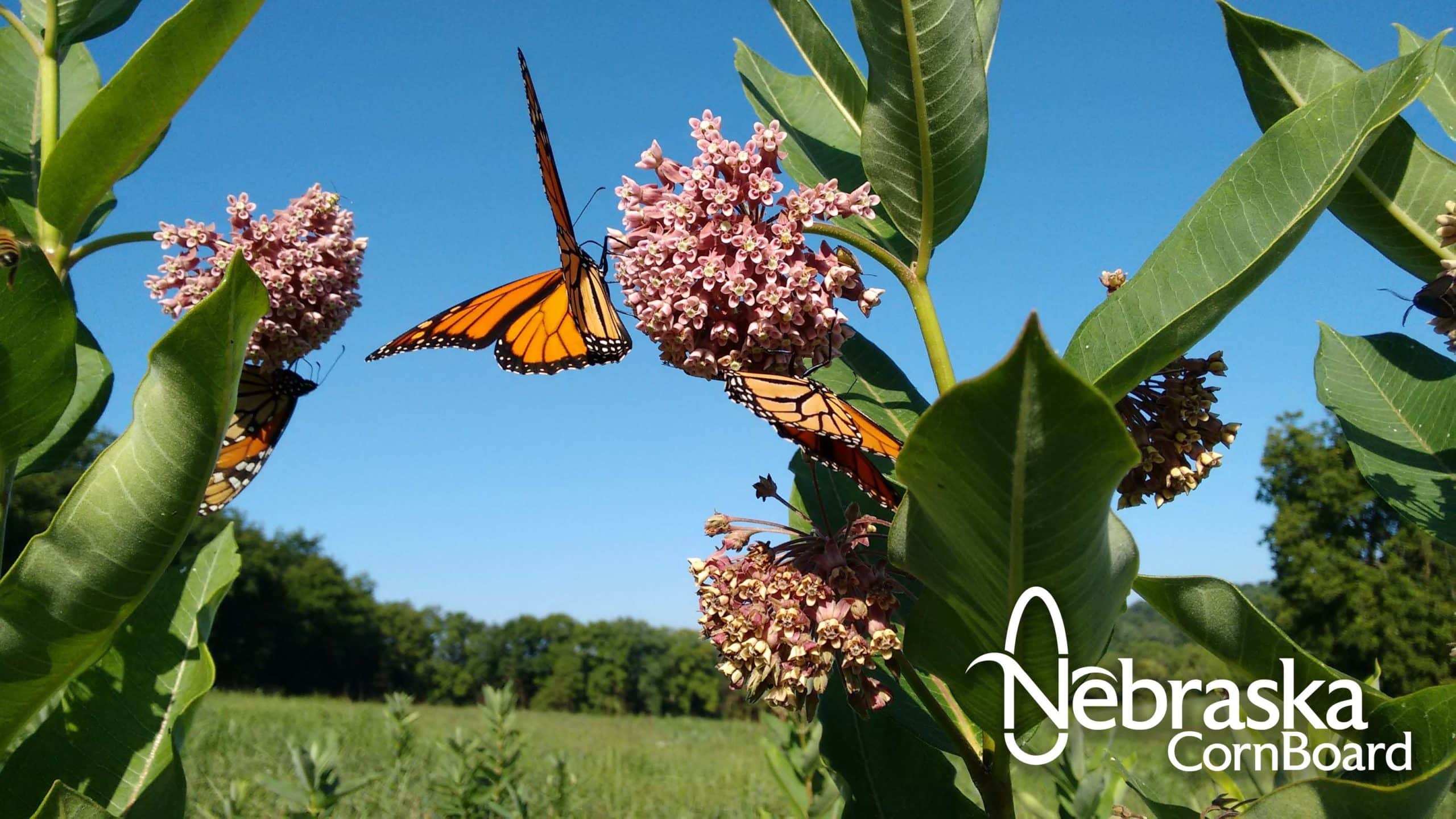
Every year since 2007, one week in June has been designated as National Pollinator Week. In 2020, this week-long celebration will be held June 22-28.
National Pollinator Week kicks off June 22 and runs through June 28. Since its unanimous approval by the U.S. Senate 13 years ago, the week is designated as a time to not only celebrate pollinators (such as bees, birds, butterflies, bats and beetles), but also a time to address what can be done to protect pollinators and their habitats.
The Nebraska Corn Board (NCB) has a long history of promoting pollinator health. Through key partnerships with local and national organizations, American corn farmers understand the importance of pollinators and are taking active steps to ensure their survival. For example, through its investments with the National Corn Growers Association (NCGA), corn farmers across the country are adding milkweed and nectar plants in rural areas through the Farmers for Monarchs initiative. Farmers for Monarchs brings together farmers, ranchers, land owners, conservationists and businesses working along the agricultural supply chain to promote monarchs and their habitat. Additionally, through its investments with NCGA, several Nebraska corn farmers are proactive in implementing pro-pollinator best management practices by working with the Honey Bee Health Coalition and the Environmental Defense Fund.
“As farmers, we need to be good stewards of the land and maintain and promote our ecosystems,” said Brandon Hunnicutt, vice chairman of the Nebraska Corn Board and farmer from Giltner. Brandon also serves as the chairman for Field to Market, a national organization designed to unite the food supply chain to deliver sustainable outcomes for agriculture.
“For the last several years on my farm, we’ve been experimenting with pollinator habitats on the borders of our fields. Corn doesn’t depend on bees for pollination like some crops do, but they’re still an important component of our overall ecosystem. We need to protect all of our ecosystems to ensure the sustainability of our land for years to come.”
Earlier this year, NCB partnered with the Renewable Fuels Association, Renewable Fuels Nebraska, Pheasants Forever and the Nebraska Corn Growers Association to expand pollinator habitats. The pilot program, in collaboration with Field to Market, brings together Nebraska’s ethanol plants and corn farmers with a goal of meeting global ethanol demand without sacrificing wildlife and pollinator habitats.

